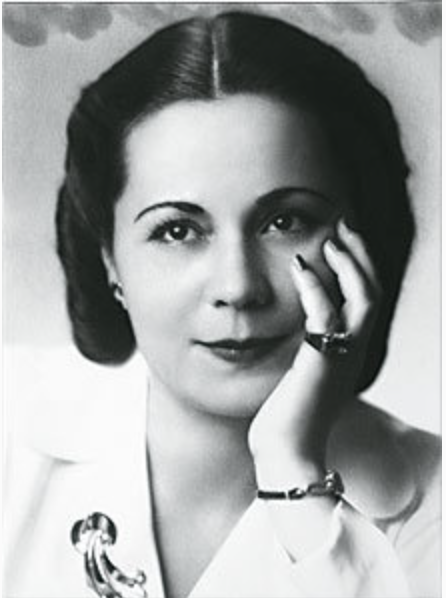She Was The Angel of Hamburg

Aracy de Carvalho received the honorable title of “Angel of Hamburg,” De Carvalho is the only Brazilian woman mentioned in the Holocaust Museum, in Israel, among 18 other diplomats who helped save Jews from genocide.
In 1982, she was honored as Righteous Among the Nations, a title given by the Israeli government to people who took extraordinary risks to help persecuted Jews. De Carvalho passed away peacefully in her home back in Sao Paulo in 2011, at 102. A victim of Alzheimer’s, just like her tragic Illness, her acts of heroism have been forgotten by many.
So who was Aracy De Carvalho before becoming a hero? De Carvalho was born in Rio Negro, Paraná, on December 5, 1908. She was the daughter of a Brazilian father and German mother, her family moved to Sao Paulo in 1930, she later married the German Johann Eduard Ludwig Tess, from whom she separated five years later.
During that time, like many women, De Carvalho, fell victim to the stigma that marked separated women. However, that did not stop her from pursuing greatness. Fearless, multilingual, and cultured, she embarked with her five-year-old son on a ship bound for Germany in 1936. With Hitler already in power, De Carvalho lived with an aunt in Hamburg.
De Carvalho was fluent in Portuguese, German, English, and French, with her education, she was quickly able to find work at Itamaraty (the Brazilian foreign ministry), as head of the passport section of the Brazilian consulate. While adapting to the country, she witnessed the expulsion of Jews from the civil service, their banishment from schools and universities, and saw them lose their rights and property.
***
This is where we rescue De Carvalho’s story from oblivion.
In the 1930s, while De Carvalho was the head of the passport section, in Brazil, under the government of Getúlio Vargas, a series of secret executive orders were approved, banning Jews from entering the country.
Defying the rules of Nazi ruled Germany, and an anti-Semitic period in Brazil, De Carvalho took various risks, and with her own initiative in a heroic approach, saved the lives of dozens of Jews, who thanks to her selfless act were able to migrate to Brazil, escaping from Nazi persecution.
Shocked by the persecution of Jews, Aracy issued more than a hundred visas in Hamburg during the Kristallnacht (Night of Broken Glass), with the support of the young diplomat João Guimarães Rosa, who was later appointed deputy consul in the city. Later, Guimarães Rosa and De Carvalho fell deeply in love, a connection born from the same principles.
Even at serious risk if discovered, De Carvalho began to omit from superiors any information that would identify an applicant as a Jew, she would issue passports without the red letter “J.” It helped countless Jewish families escape death in Hitler’s concentration camps.
She would secretly transport Jews in the consular service car and help them hide at her home. De Carvalho would also accompany Jewish refugees to ships and conceal their jewels and money in her purse to avoid the Nazi authorities from confiscating them.
In her later years, many reporters would ask the same question on her courage in which De Carvalho would always reply, “it was the right thing to do.”
In 1942, when Brazil broke diplomatic ties with Germany and allied with the United States, England, and the Soviet Union against Hitler, the couple were held captive by the Gestapo in a hotel for 100 days; until the establishment of the exchange of diplomats between the two countries.
In 1982, De Carvalho was awarded the highest honor for non-Jews who risked to protect victims of the Holocaust and was declared Righteous Among the Nations by the government of Israel. She was also honored at the Holocaust Museum in Washington and Jerusalem.
De Carvalho’s story is fascinating and sadly often forgotten. Like many heroes during that period, she occupies an essential role in history, and we must do our job in keeping her story alive.

Nicole Alarcon is a senior at Mercy College, majoring in journalism. Born in São Paulo, Brazil, she moved to the United States at 10-years-old.
Nicole...







